UNSC members express opposing views on Kosovo
Ambassadors of UN Security Council member states expressed different views on the situation in Kosovo during the meeting on Tuesday.
Wednesday, 22.08.2012.
10:39

NEW YORK Ambassadors of UN Security Council member states expressed different views on the situation in Kosovo during the meeting on Tuesday. The British ambassador talked about progress and willingness to end supervised independence, while the Russian stressed the need to follow Resolution 1244. UNSC members express opposing views on Kosovo The differences in the council members' attitude towards Belgrade and Pristina are indicated also by the order in which the diplomats welcomed Serbia's Prime Minister Ivica Dacic and Kosovo's Prime Minister Hashim Thaci. The German and British ambassadors welcomed Thaci first, while the Russian, Portuguese, Moroccan and Indian ambassadors welcomed Dacic first. Britain’s Ambassador Philip Parham said the end of supervised independence was a recognition of the progress made in Kosovo. “Great Britain expects the talks between Belgrade and Pristina to continue soon, and the key thing is for Belgrade to implement the agreements made so far in the technical dialogue, including the ones on regional representation and border management,” Parham stated. He believes regional cooperation and good relations with neighbors were key for the EU integration of Kosovo and Serbia and that Belgrade and Pristina should make room for compromise in their talks. Parham also noted Britain thought it was necessary to dismantle the so-called parallel institutions in northern Kosovo and for the authorities in Pristina to support the minorities in Kosovo in a practical way. Russian Ambassador Nikita Zhukov supported Belgrade's views, which had been presented by Dacic and pointed out that UN Security Council Resolution 1244 remained binding to all. “Russia's position on Kosovo remains unchanged,” stressed Zhukov, adding that UNMIK was the primary international presence in Kosovo. Zhukov pointed out to the pressure exerted on Serbs in order to get them to leave Kosovo and he criticized ethnically motivated killings and inefficient investigations into those incidents. Deputy Chinese Ambassador to the UN Wang Min said his country advocated respect for Serbia's sovereignty and territorial integrity and that Resolution 1244 should be followed in solving the Kosovo crisis. Wang stated the situation in northern Kosovo was still serious, calling on all sides to refrain from actions that could cause new tension. He congratulated the new Serbian government on being elected, calling on Belgrade and Pristina to resume their dialogue, which he said was in the interest of peace and stability for the entire Balkans. Wang is also concerned about allegations of organ trafficking in Kosovo, stressing that his government supported an investigation led by the UN. U.S. Ambassador Rosemary DiCarlo congratulated Kosovo on the announcements of ending the supervised independence, remarking that a multiethnic and democratic country was being built there. DiCarlo underscored the danger that criminals and hardliners posed to peace in northern Kosovo, adding that there was still no freedom of movement. “Parallel institutions have no place in Kosovo and should have been dismantled a long time ago in accordance with Resolution 1244,” she asserted. DiCarlo welcomed the resumption of the dialogue, commending all the statements by Dacic and Thaci about everything agreed so far being implemented. “The U.S. condemns the killing of two Serb returnees, takes seriously all the allegations from Dick Marty's report and supports the investigation led by Clint Williamson,” she said. The ambassadors of Morocco and India emphasized that the situation in northern Kosovo was still fragile and had to be monitored daily and expressed particular concern over the attacks on buses carrying Serb children and the murder of two Serb returnees. The ambassadors of Pakistan and Columbia underline the role of UNMIK. Serbian Prime Minister Ivica Dacic said in his address that Belgrade was ready for the dialogue with Pristina but that Kosovo Albanians needed to show good will and readiness to compromise. He also added that the Kosovo status had not been resolved and that it could not be resolved outside the UN Security Council. (Tanjug, file) “Serbs feel safe in Kosovo” Kosovo's Prime Minister Hashim Thaci said in New York on Tuesday that Kosovo's status was settled and that the safety of the Kosovo Serbs was no longer an issue. According to him, Kosovo has built democratic and multiethnic institutions. Thaci, who decided to attend a meeting of the UN Security Council after an announcement that the Serbia's prime minister would attend as well, said in his address to the UN's highest body that Kosovo had built democratic and multiethnic institutions, and that Pristina was now a safe place. According to Thaci, the Kosovo Serbs are satisfied with the security situation, their safety is no longer a key issue and Pristina is now safer than most of the capitals in the region. Tanjug
UNSC members express opposing views on Kosovo
The differences in the council members' attitude towards Belgrade and Priština are indicated also by the order in which the diplomats welcomed Serbia's Prime Minister Ivica Dačić and Kosovo's Prime Minister Hashim Thaci. The German and British ambassadors welcomed Thaci first, while the Russian, Portuguese, Moroccan and Indian ambassadors welcomed Dačić first.Britain’s Ambassador Philip Parham said the end of supervised independence was a recognition of the progress made in Kosovo.
“Great Britain expects the talks between Belgrade and Priština to continue soon, and the key thing is for Belgrade to implement the agreements made so far in the technical dialogue, including the ones on regional representation and border management,” Parham stated.
He believes regional cooperation and good relations with neighbors were key for the EU integration of Kosovo and Serbia and that Belgrade and Priština should make room for compromise in their talks.
Parham also noted Britain thought it was necessary to dismantle the so-called parallel institutions in northern Kosovo and for the authorities in Priština to support the minorities in Kosovo in a practical way.
Russian Ambassador Nikita Zhukov supported Belgrade's views, which had been presented by Dačić and pointed out that UN Security Council Resolution 1244 remained binding to all.
“Russia's position on Kosovo remains unchanged,” stressed Zhukov, adding that UNMIK was the primary international presence in Kosovo.
Zhukov pointed out to the pressure exerted on Serbs in order to get them to leave Kosovo and he criticized ethnically motivated killings and inefficient investigations into those incidents.
Deputy Chinese Ambassador to the UN Wang Min said his country advocated respect for Serbia's sovereignty and territorial integrity and that Resolution 1244 should be followed in solving the Kosovo crisis.
Wang stated the situation in northern Kosovo was still serious, calling on all sides to refrain from actions that could cause new tension.
He congratulated the new Serbian government on being elected, calling on Belgrade and Priština to resume their dialogue, which he said was in the interest of peace and stability for the entire Balkans.
Wang is also concerned about allegations of organ trafficking in Kosovo, stressing that his government supported an investigation led by the UN.
U.S. Ambassador Rosemary DiCarlo congratulated Kosovo on the announcements of ending the supervised independence, remarking that a multiethnic and democratic country was being built there.
DiCarlo underscored the danger that criminals and hardliners posed to peace in northern Kosovo, adding that there was still no freedom of movement.
“Parallel institutions have no place in Kosovo and should have been dismantled a long time ago in accordance with Resolution 1244,” she asserted.
DiCarlo welcomed the resumption of the dialogue, commending all the statements by Dačić and Thaci about everything agreed so far being implemented.
“The U.S. condemns the killing of two Serb returnees, takes seriously all the allegations from Dick Marty's report and supports the investigation led by Clint Williamson,” she said.
The ambassadors of Morocco and India emphasized that the situation in northern Kosovo was still fragile and had to be monitored daily and expressed particular concern over the attacks on buses carrying Serb children and the murder of two Serb returnees.
The ambassadors of Pakistan and Columbia underline the role of UNMIK.
Serbian Prime Minister Ivica Dačić said in his address that Belgrade was ready for the dialogue with Priština but that Kosovo Albanians needed to show good will and readiness to compromise.
He also added that the Kosovo status had not been resolved and that it could not be resolved outside the UN Security Council.
“Serbs feel safe in Kosovo”
Kosovo's Prime Minister Hashim Thaci said in New York on Tuesday that Kosovo's status was settled and that the safety of the Kosovo Serbs was no longer an issue.According to him, Kosovo has built democratic and multiethnic institutions.
Thaci, who decided to attend a meeting of the UN Security Council after an announcement that the Serbia's prime minister would attend as well, said in his address to the UN's highest body that Kosovo had built democratic and multiethnic institutions, and that Priština was now a safe place.
According to Thaci, the Kosovo Serbs are satisfied with the security situation, their safety is no longer a key issue and Priština is now safer than most of the capitals in the region.















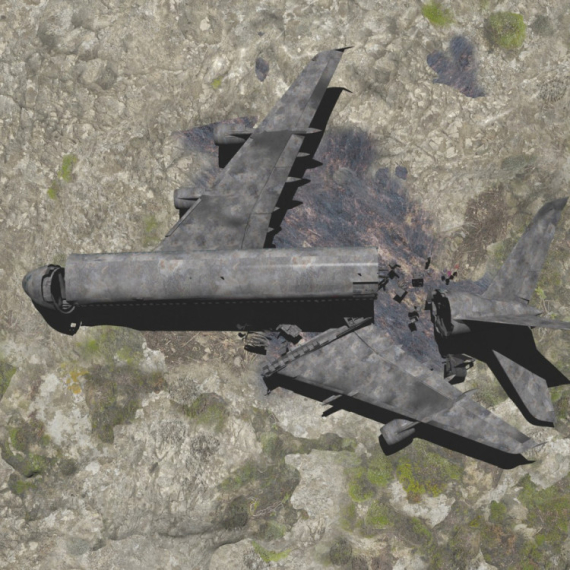
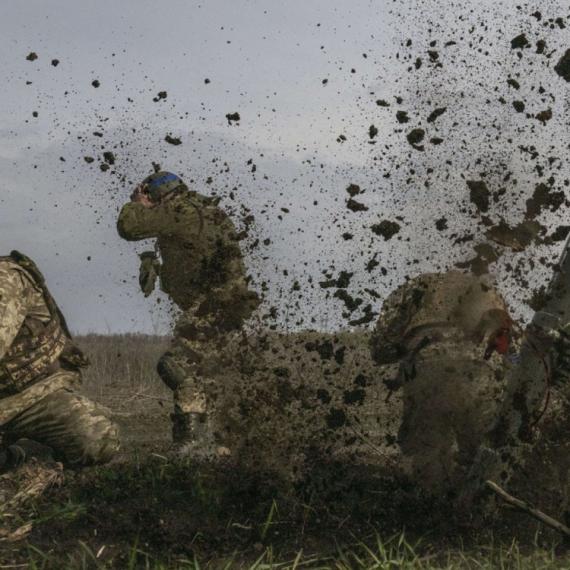
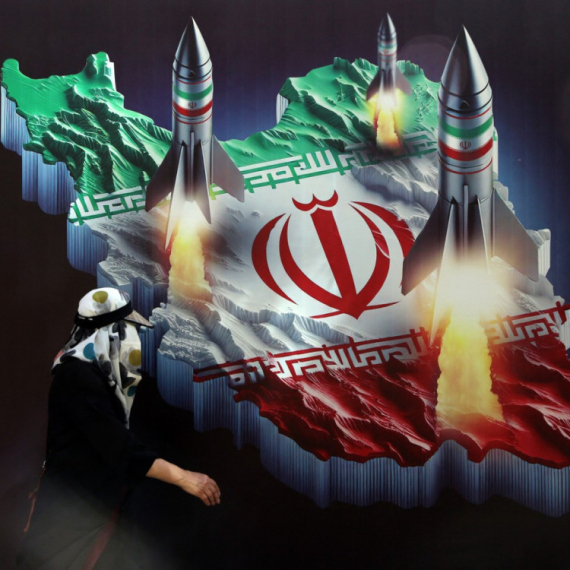
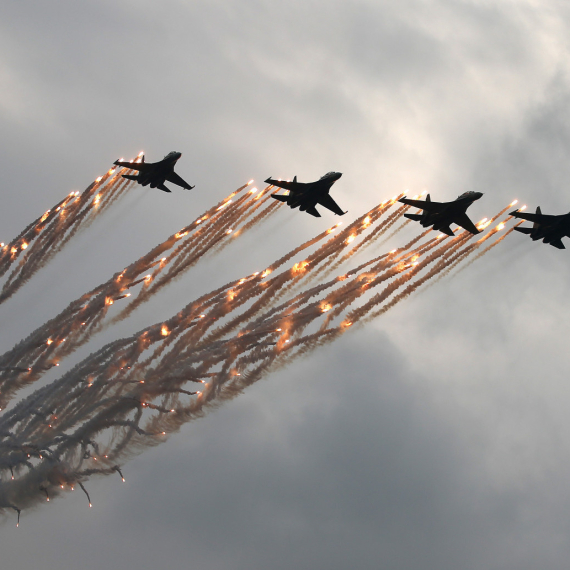








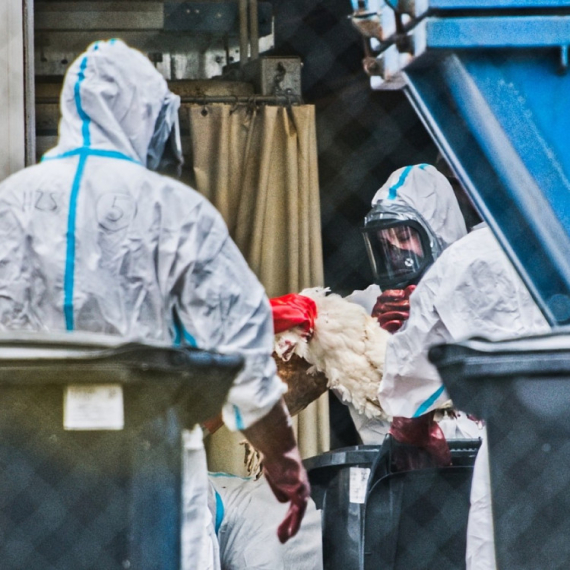












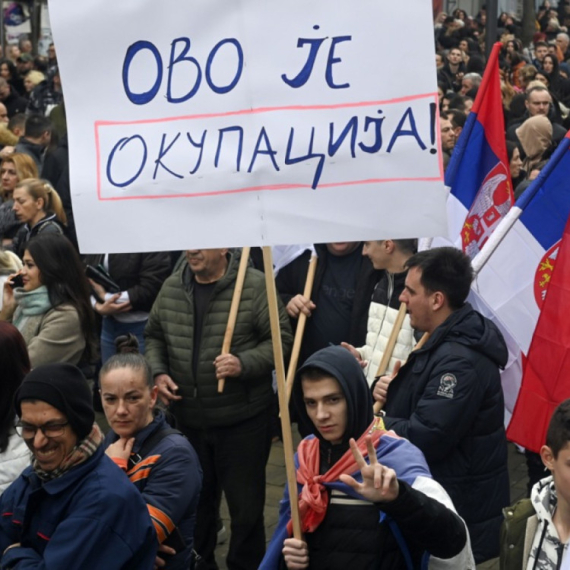
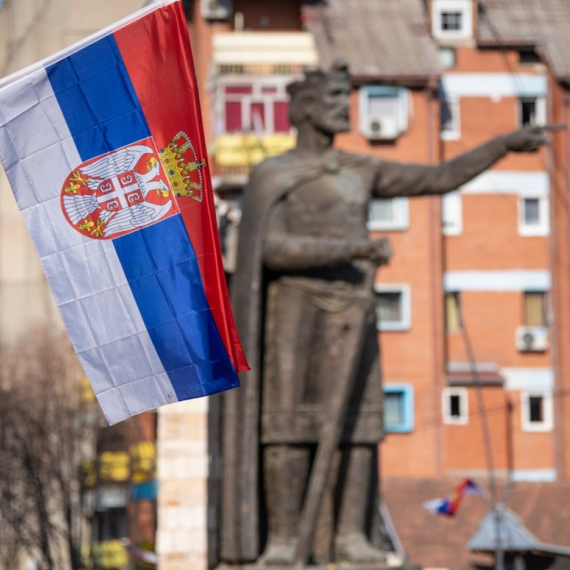
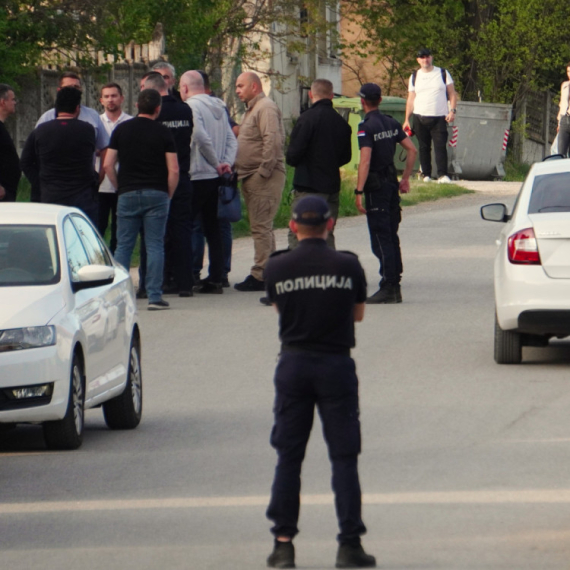






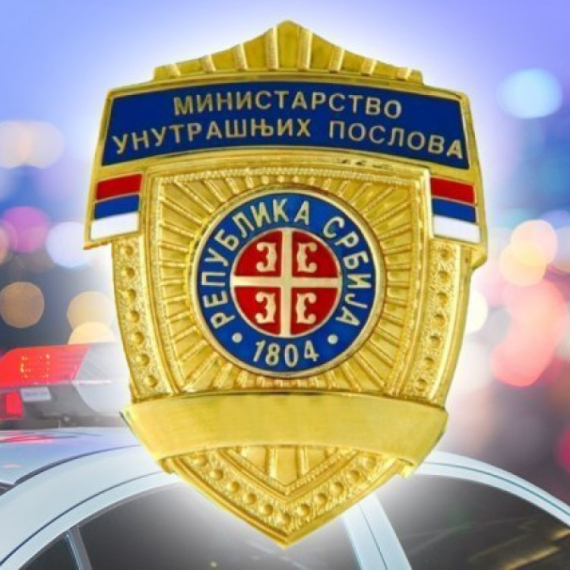



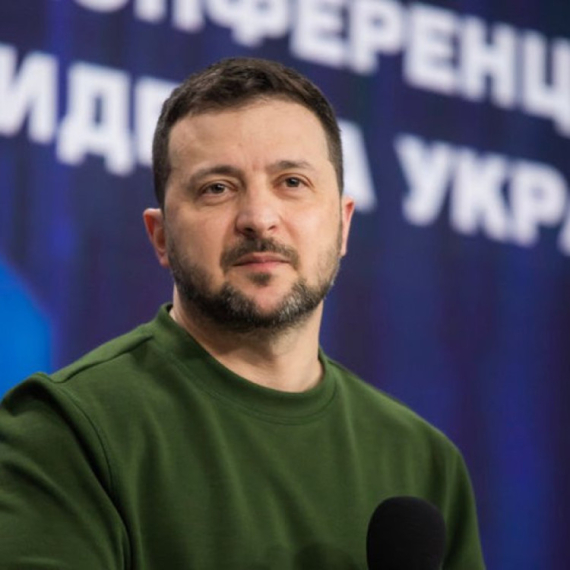
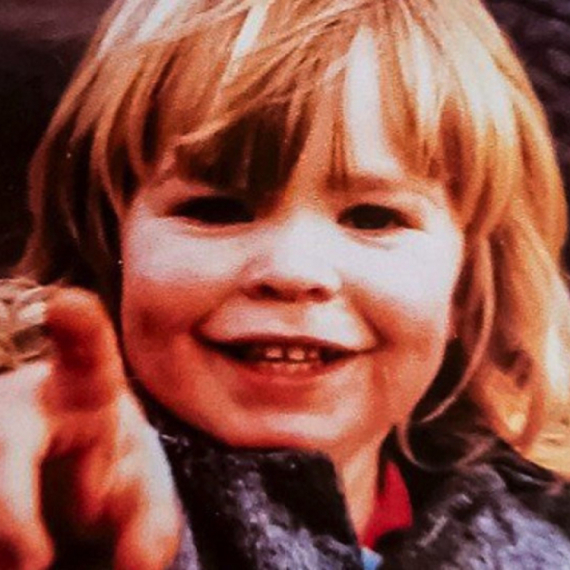
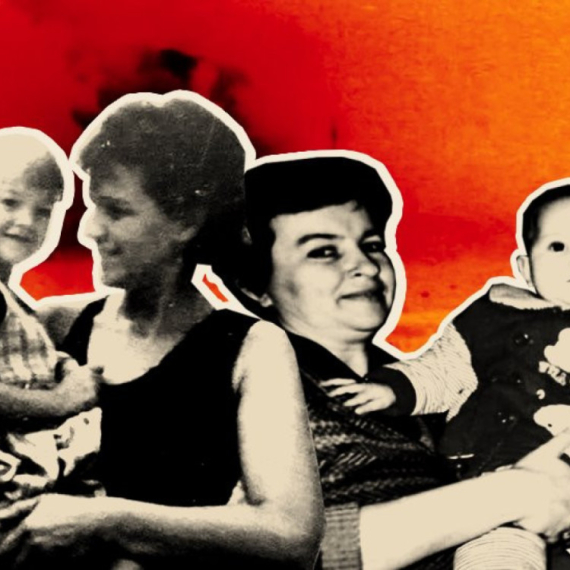
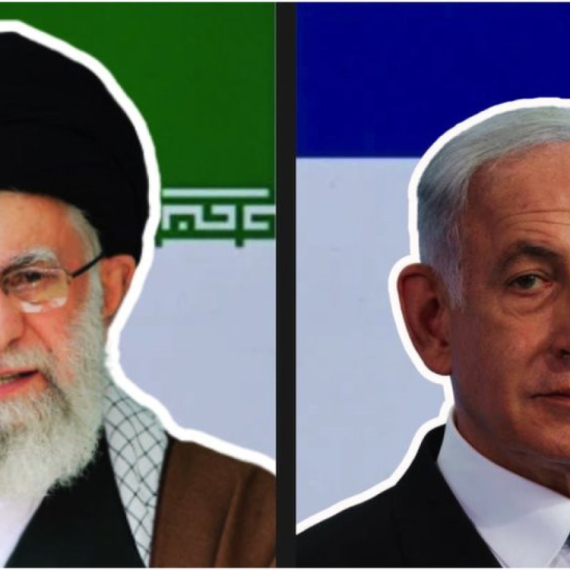


Komentari 32
Pogledaj komentare